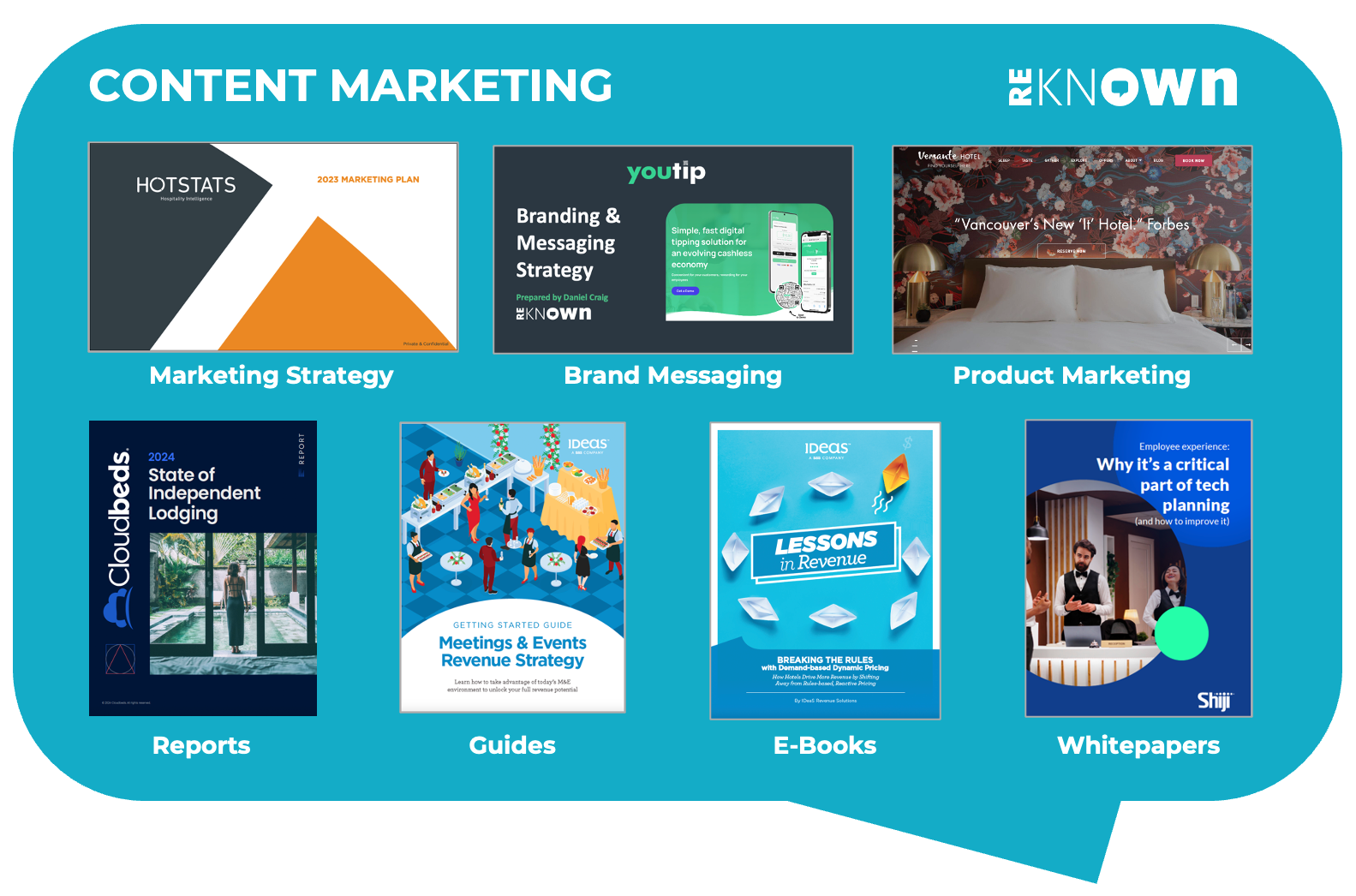In today’s digital landscape, technology companies face a growing challenge: building business using traditional outreach methods is getting harder. Prospects rarely answer calls, open emails, or click ads. Schedule a demo? Good luck.
Amid these challenges, content marketing remains one of the most powerful and cost-effective ways to connect with prospective customers. Yet, despite its proven ability to drive website traffic, engagement, and leads, HubSpot’s 2024 State of Marketing Report reveals that only 29% of marketers actively leverage content marketing.
As you put your marketing plans into place for 2025, here’s how to build or refresh your content strategy:
1. Define Clear Objectives
The marketing function is so diverse and chaotic, it’s easy to lose sight of your goals. Your content strategy should:
- Build awareness and trust with your target audience
- Increase search visibility and website traffic
- Generate qualified leads
- Guide prospects through the conversion funnel
- Enhance customer engagement for better retention and upsell opportunities
All content marketing activities should be designed to achieve these objectives, while aligning with overall marketing objectives and business growth goals.
2. Assess Your Content Portfolio
What materials have you published in the past two years, and how effective have they been? Begin with a comprehensive audit of your existing content:
- Create a spreadsheet of each piece’s topic and format
- Track key metrics:
- Website metrics: visitors, pageviews, conversions
- Email performance: opens, clicks, downloads
- Social engagement: interactions, shares, comments
- Analyze competitor content
- Identify gaps and opportunities
- Determine which content to create, refresh, repurpose, or replace
3. Create Valuable, Engaging Content
One of the main reasons content is ineffective is it fails to capture the interest of its target audience. Focus on quality over quantity:
- Prioritize educational content over product promotion
- Address industry trends, best practices, and common challenges
- Diversify your formats to include:
- Blog posts and articles
- Guides and whitepapers
- Videos and webinars
- Podcasts and interactive content
- At least one piece of flagship content annually
- House everything in a dynamic, interactive resource library on your website
4. Develop a Distinctive Voice
So much content sounds the same, with meaningless generalizations and overblown claims. This creates an opportunity for you to stand out:
- Share your views on important trends with thought leadership
- Focus on your team’s experience and expertise
- Share unique insights and proprietary data
- Consider hiring professional content creators
- Establish clear brand guidelines for consistency
5. Optimize for Search
To attract qualified traffic to your website, align content with SEO best practices:
- Regularly update your keyword research
- Use tools like Google’s SEO suite, Ahrefs, and Semrush
- Strategically incorporate keywords into content structure
- Monitor and adapt to ranking changes
6. Leverage AI Strategically
AI can be an incredibly helpful tool for content marketers. Integrate AI in two key areas:
- Content Creation:
- Use AI for research, ideas, outlines and editing
- Maintain human expertise for final content
- Focus on quality and authenticity
- Search Optimization:
- Optimize for AI chatbot queries
- Address specific customer pain points
- Structure content for both traditional and AI search
7. Maximize Content Distribution
Ensuring your content reaches prospects requires a multichannel approach:
- Promote content on your website, in email newsletters, and on social media
- Repurpose content into various formats
- Gate high-value resources to generate leads
- Partner with industry influencers
- Use marketing automation for personalized delivery
8. Monitor and Adjust Content Strategy
Successful content marketing requires advance planning and a structured approach while also maintaining flexibility:
- Develop a detailed content calendar
- Align content with product launches and updates
- Track performance metrics monthly
- Adjust strategy based on results
- Coordinate with sales and product teams
Remember: successful content marketing in 2025 requires a balance of strategic planning, quality content creation, and effective distribution. By providing genuine value to your target audience, you can offset declining outreach methods while advancing your growth marketing goals.
Check out our posts about refreshing your content library and creating flagship content.


